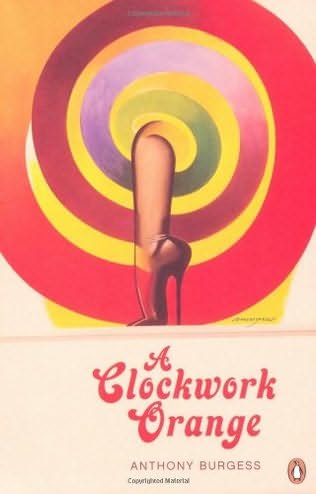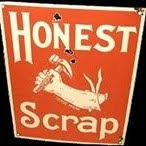Spoilers ahead.

I'm going try really hard to keep this post about only the book. I'll do a separate one about the movie and comparing the two after I watch it again later this week. It's been years.
So, this book nearly jumped off the shelf at the library last week. I had never read it, despite being a HUGE fan of the movie when I was younger. So I picked it up. It's considered a classic, which may come as a surprise if you've seen Kubrick's movie, but after reading it, I can completely understand why. It's the story of a teenager, Alex, and his band of droogs, who spend their nights wreaking havoc on the streets, drinking, smoking, beatings, rape, murder, all just for fun. A bit of the ultraviolence, if you will. Eventually he gets arrested and goes to prison after he pisses off his friends and they leave him behind to get caught at the scene of a breaking and entering where Alex has just beat an old woman to death.
While in prison he is enrolled in an experimental procedure to attempt to "cure" him of this ultraviolence using a Pavlovian technique that leaves him ill at the mere thought of perpetrating violence, or hearing his beloved Beethoven, or any other classical music, which he so enjoys prior to the experiment. After being "cured" and released, he stumbles into the hands of a political coup, who attempt to use him as an example to overthrow the current government. After a failed suicide attempt (jumping out the window to escape the classical that's being pumped into the room he's otherwise locked into) lands him in the hospital, he is then treated for the after effects of the Ludovico treatment, returning him back to his ultraviolent state of mind.
Whereupon the original American version of this book ends, leaving the reader with the slightly conflicting emotions that oh good, Alex is no longer behaving as a "clockwork orange," his free will has been restored, the poor dear child has been set to right, and oh shit, but Alex's free will and sound mind leaves him in search of the ultraviolence, and now he's being put back on the street to commit more rape, murder and mayhem. In the original Original version, there is another chapter, wherein we find that while Alex has been set back to his right mind, that being with a tendency toward ultraviolence, his heart is no longer in it. He's very much in charge of his new group of droogs, him now being the oldest and wisest, but he tends to just give orders ad watch them being carried out, no longer feeling the need to participate. After running into one of his old droogs in a cafe, sharing coffee with his new wife, Alex realizes that maybe it is time to grow up after all, and maybe this ultraviolence is for the kids, and was just a phase that he is now over. Growing up and looking to settle down with a wife and children, Alex heads home to bed, sworn off the ultraviolence for good. All he really needed in terms of "treatment" was some time to grow up and make the decision for himself.
This last chapter changes everything, does it not? So why was the 21st chapter originally left off in the American version? Because the American publisher felt that Americans would relate more and appreciate the story more if it left you with the sense that more mayhem was to come. Believed that Americans wouldn't enjoy the story with the ending that the Author wrote, the ending that leans toward hope and gives a feeling of growing up and coming of age, if you'll pardon the use of that term. WTF? I fully understand why Kubrick chose to make his film using the 20 chapter version instead of the 21 chapter version, but more on that in another post, as I said. But I don't think the book is a classic without that last chapter. In fact, I'll say it here, and probably again in the movie post, but I don't think the film would have received the critical acclaim and award nominations that it did if it had included the last chapter, and at the same time, I don't think the book would be the literary success that it is if that last chapter had never been written.
Burgess developed his own slang for this book. It's mostly a cross between Russian and British cockney rhyming slang, often spelled phonetically, with a little bit of school-boy talk thrown in. It takes some getting used to the language, but once you get used to it, the book really is so very good. It's funny how the book involves some level of brainwashing, and by writing this way, the reader is brainwashed into learning this Nadsat language he's created. I've even found myself using words here and there for the past few days. And I've talked to other people who've had the same experience. It's brilliant. This book is brilliantly written, perfectly put together and a fantastic read. One of the absolute best I've read in a very, very long time. I've been thinking about it for days. A book that can make me think for days goes on a very special list for me. I have favorites and I have favorites, and this has just landed among the latter. Read it, if you haven't already.
Stay tuned for another post about the film later this week.










No comments:
Post a Comment